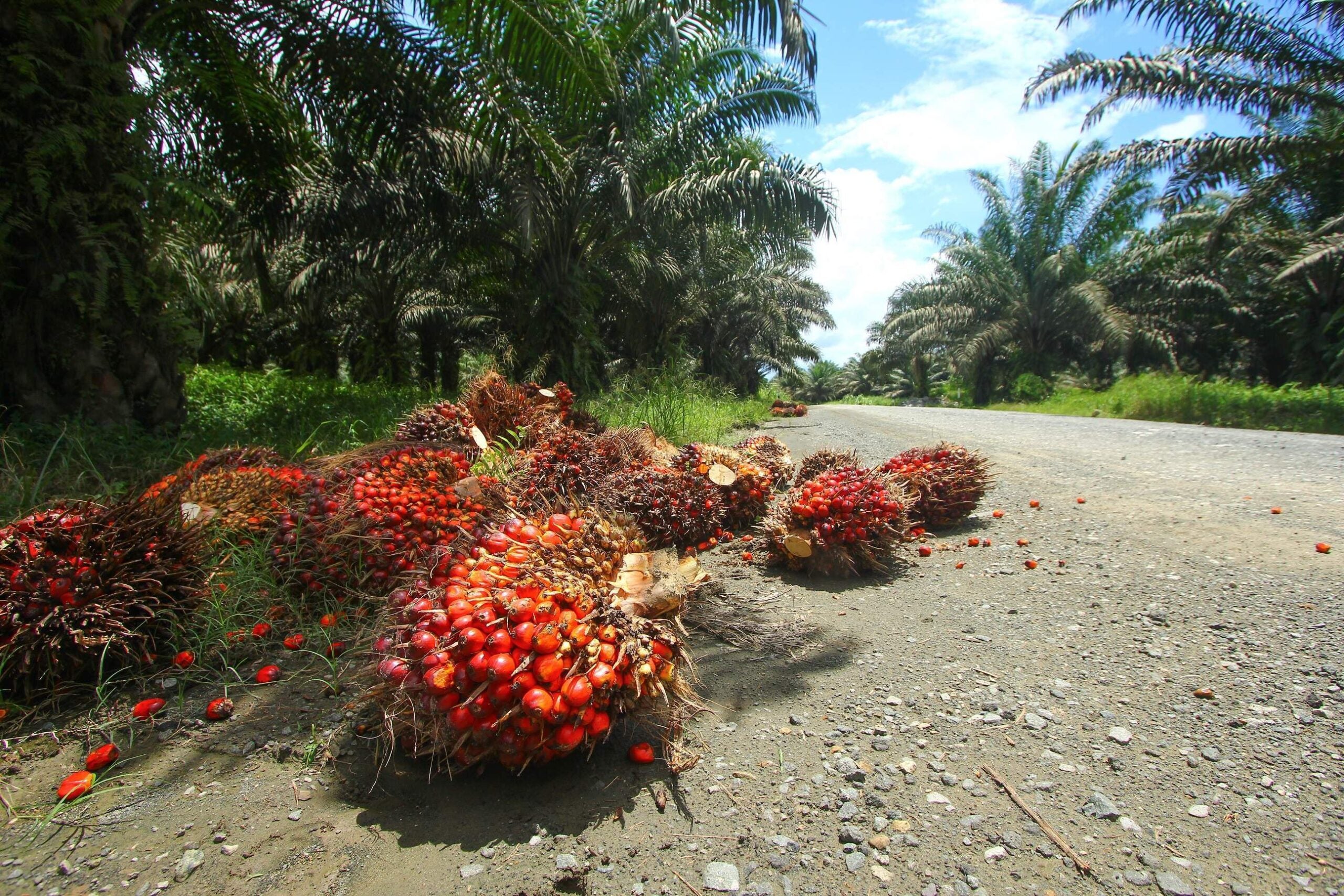
The debate about the use of palm oil is back on the agenda ahead of a European Union (EU) vote on the matter.
The vote taking place at the European Parliament in Brussels later today is part of the EU’s draft targets on biofuels. A significant amount of biofuels, almost half in fact, used across Europe contain the controversial ingredient.
Why is palm oil so controversial?
The world relies on palm oil. It is found in half of all supermarket products, from food such as frozen pizzas and biscuits to beauty products including makeup, soap, and candles.
However, this reliance has had a detrimental effect on the planet. In countries such as Indonesia, which is the largest producer of palm oil, rainforests are torched to make room for production. This is often illegal.
Also, the clearing of the rainforests is detrimental to endangered species such as orangutans and Sumatran tigers.
In addition, a study by the European Commission found that greenhouse gas emissions from biodiesel like palm oil can be more than three times higher than those from conventional diesel. This is down to the indirect effects of palm oil production, mainly deforestation.
How well do you really know your competitors?
Access the most comprehensive Company Profiles on the market, powered by GlobalData. Save hours of research. Gain competitive edge.

Thank you!
Your download email will arrive shortly
Not ready to buy yet? Download a free sample
We are confident about the unique quality of our Company Profiles. However, we want you to make the most beneficial decision for your business, so we offer a free sample that you can download by submitting the below form
By GlobalDataDidn’t the EU ban palm oil already?
Last year, MEPs in the European Parliament voted to ban biofuels made from vegetable oils by 2020. A total of 640 MEPs voted overwhelmingly in favour of the ban, compared to 18 against.
However, today’s EU palm oil vote is on amendments proposed on targets for biofuels. Once MEPs vote on the amendments today, the amendments will go before the European Commission and member states before it becomes law.
Not everyone is happy about the palm oil ban
The major countries that produce palm oil, such as Malaysia and Indonesia, are not happy about the ban.
Yesterday, farmers took to the streets of Kuala Lumpur, Malaysia’s capital, to protests against the ban.
Aliasak Ambia, president of the National Association of Smallholders, the farmers’ association in Malaysia, said:
“We are protesting (the EU’s call) … as we will lose out. Smallholders rely on palm oil income to buy food and send their children to school. We have cultivated palm for decades, (and) it has brought development.
“The country is rich because of palm oil.”
As well, Malaysia’s prime minister Najib Razak and Indonesia’s president Joko Widodo have also criticised the ban, calling it discriminatory.







